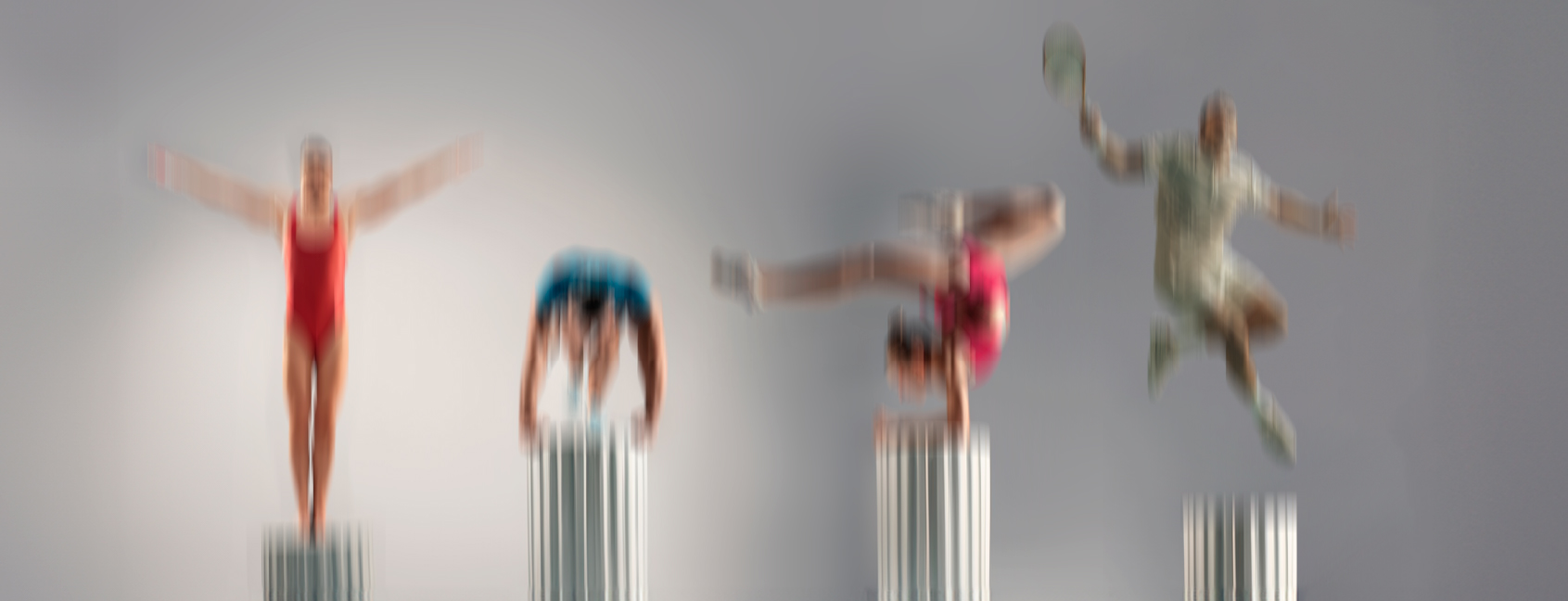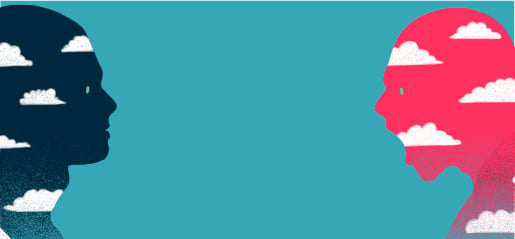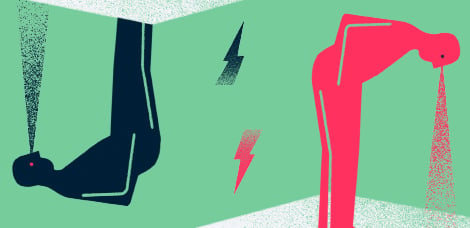-
TrendsSocial MediaReputation
-
SectorOthers
-
CountriesGlobal
Every four years, more than three billion of us gather to watch men and women shatter records on tracks, pools, diving boards, and arenas. Television and media have allowed us to enjoy their competitions for years and get to know the three medalists whose names will circle the globe. However, until recently, we knew little about life in the Olympic villages, where nearly eleven thousand athletes reside for fifteen days.
The London Games changed that. We started learning more about Michael Phelps, his diet, and his training, which gained significant attention. We also saw him dancing to “Call Me Maybe” alongside the entire swim team, one of the first pieces of content to go viral. In Rio, Instagram and Snapchat stories allowed athletes to share more informal content and show their lives behind the scenes. Finally, at Tokyo 2020, we saw the real impact of viral content through TikTok, connecting with athletes as people beyond their Olympic image—such as Simone Biles, who ultimately chose to prioritize her mental health over competition.
At the Paris 2024 Olympics, we are witnessing a new way of experiencing the Games. Athletes are making waves worldwide without even reaching the finals of their competitions, and images only make sense in the context of memes and trends. What have we learned from the viral moments coming from the City of Light?
You can be an icon and set global trends without winning a medal
Henrik Christiansen, a Norwegian swimmer at the Paris 2024 Olympics, has gone viral as the Muffin Man due to his enthusiasm for the chocolate muffins in the Olympic Village. His funny TikTok videos showcase his love for these muffins, rating them an “11/10” and eagerly hoarding them with a look of love in his eyes.
Christiansen’s videos have inspired other athletes to turn his TikTok audio into a trend, with one muffin-related post garnering over 20 million views. As a result, his community has grown by 220%, maintaining an engagement rate of 14.8%, an 8.5% increase since his first muffin video. Who would have thought this athlete would become known throughout the Olympic Village, with others asking to make videos with him?
The reputation game: an always-on strategy
The Olympics are more than just a chance for athletes to qualify in sports. They are also the biggest opportunity to strengthen personal brands and attract sponsors, collaborating brands, and various professional possibilities. The host cities, too, are constantly compared to the economic and strategic displays of past editions. Paris 2024 has given us much to reflect on in this regard.
In personal branding, we’ve seen the return of a stronger-than-ever Simone Biles. Besides shining in her athletic performance, she has worked on her personal brand across different channels over time. Since her withdrawal from the Tokyo final due to what she described as not being mentally prepared, Biles has become an icon of mental health. After four years, she reappeared at the Olympics alongside a Netflix documentary that explains the work behind her comeback, framed by Maya Angelou’s poem “Still I Rise”.
However, some athletes have suffered the consequences of unintended viralization. Italian swimmer Thomas Ceccon, for instance, found himself in a storm of viral content after being filmed sleeping in a park, presumably due to the high temperatures in the Olympic Village, a situation he had previously complained about. Following the viral video, Saudi rower Husein Alireza, who posted the content on his Instagram stories, denounced the fake news surrounding it, saying it’s common for athletes to nap outdoors by the river. Ceccon stated, “I just took a nap for an hour, and social media exploded”.
But it’s not just the athletes whose Olympic experience revolves around reputation. Paris itself has been the subject of countless social media conversations, covering topics from its “slow pools,” apparently due to a shallower-than-regulation depth, to the highly viralized opening ceremony, criticized by the Christian community for a specific representation perceived as offensive, or the much-discussed controversy over whether the Seine’s waters are safe for swimming.
From a communication perspective, this last controversy has seen several exciting twists in discourse worth studying, especially regarding the management of Paris’s tourist and institutional brand reputation. Both Paris Mayor Anne Hidalgo and Sports Minister Amélie Oudéa-Castéra took a dip in the Seine to demonstrate their confidence in the river’s cleanliness ahead of the Games. However, as the event progressed, various events were suspended or postponed due to water quality monitoring results, compromising the city’s image in social media coverage, despite Paris’s announcement that the Seine will be open for public swimming in 2025.
Diversity and representation are key to connecting
Very few people can relate to the physique or abilities of elite athletes. During the first days of the Games, we saw Yusuf Dikec, a 51-year-old man of modest appearance, win a silver medal in shooting without any technical equipment, one hand in his pocket. In his first statements after going viral, he said that he had never appeared on fans’ radar despite representing his country in two consecutive editions. Now, with millions of memes and comments worldwide, he may go down in history as someone who made many dreams of reaching the pinnacle of Olympism.
When we talk about representation, we can’t forget to celebrate the inclusion of athletes who are also mothers, breaking one of the strongest gender gaps in sports. Years ago, Allyson Felix won a lawsuit for discrimination due to pregnancy. Today, she has ensured the IOC provided lactation rooms in the Olympic Village. We’ve seen viral photos of athletes hugging their babies after winning a match and pregnant women competing and winning. What stigma will be broken next?
The Olympics highlight the growing polarization of social discourse
This year, the Olympics have also reflected the deep divisions characterizing an increasingly polarized world. In just the last five years, according to our report ‘The Hidden Drug”, polarization has increased by 40%, with Brazil, Argentina, and Spain leading among Spanish-speaking countries. According to our study ‘From Words to Algorithms’, released earlier this year, the most polarized topics include climate change, racism, and feminism, so it’s no surprise that global events like the Olympics showcase these divisions.
The participation of Imane Khelif, a renowned intersex boxer from Algeria, is a clear example of this phenomenon on social media. Her presence at the Games sparked a heated debate online about fairness in competitions and the legitimacy of transgender and intersex athletes participating in female categories. Another contentious issue was the participation of Dutch beach volleyball player Van de Velde, who, after serving a prison sentence for rape, qualified for the Olympics and was widely booed throughout his participation. His presence sparked an ethical debate about social reintegration and whether certain crimes should permanently disqualify someone from participating in such significant events.
The Olympic opening ceremony also sparked controversy for several reasons: the decision to hold it along the Seine while the river’s water quality was in question, performances with direct references to the beheading of Marie Antoinette, and a show criticized by the international Catholic community and the Vatican for being a direct offense to their beliefs and an insult to the Last Supper.
Despite the divisions and controversies, the Olympics also amplify the spirit of camaraderie and solidarity. Chinese badminton player He Bing Jiao, who won the silver medal, performed a gesture towards Spain’s Carolina Marín that has been praised internationally. After the injury that prevented Marín from continuing in the competition, Bing Jiao wore a Spanish pin during the medal ceremony and sent her a message of encouragement on social media.
The power of narrative and social listening
A global trend appeared on many “For You” pages: under a phrase like “I regret to inform you that I was not selected for the Olympics,” users humorously shared their failures during tournaments or competitions.
We didn’t expect to see one of the stars of the U.S. gymnastics team, Suni Lee, use this trend to change the narrative around what had happened in her balance beam routine. She took the video that was being broadcast by all the media showing her fall and edited it to change the trend from “Sorry to announce I didn’t make it to the Olympic team” to “Unfortunately, I was selected for the Olympics“, a humor that resonated wonderfully with her audience and the broader TikTok community. With over 4 million views, what could have been seen as a mere “failure” soon became filled with messages of support and praise for her sense of humor.
In conclusion, social media has allowed athletes to connect directly with their followers, share their experiences, and humanize the competitive aspect of the Olympics. This unprecedented access to life inside the Village has captivated the public, offering an intimate and authentic look at what it means to be an Olympic athlete. At the same time, athletes have shown they’re aware of digital trends, incorporating nods to them in their celebrations, press conference responses, or captions in their digital content.
It’s time to see the “GRWM to win a medal” and dance or pose to the rhythm of new trends. The Olympics have conquered social media… or perhaps it’s the other way around. In any case, there’s no doubt we’ve entered a new era where athletes have become the masters of their narratives, with potential beyond their respective disciplines.
Patricia Charro
Brand & Ad Manager, Madrid.
Andrea Cortés
Mexico Marketing Solutions Key Clients Director.



